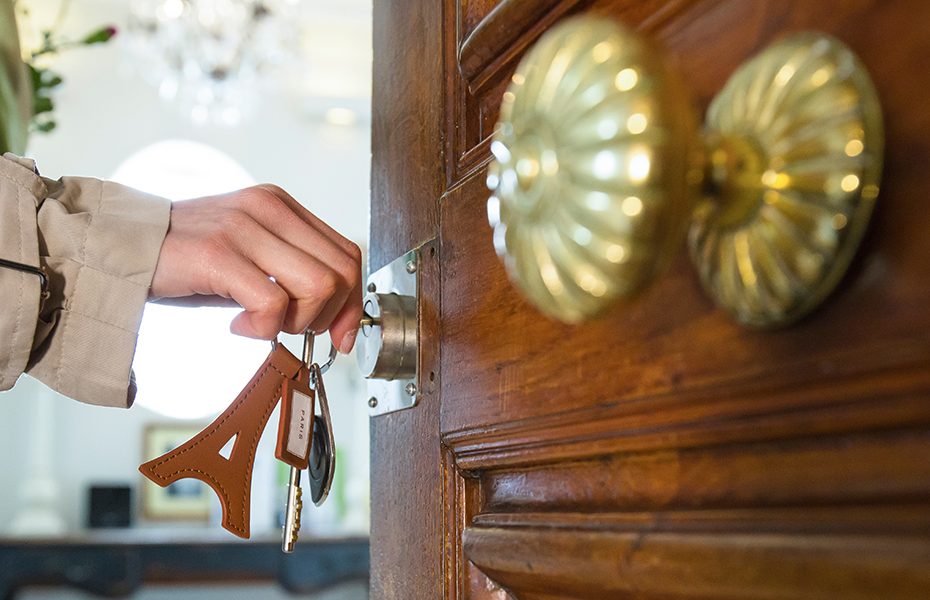
Key Takeaways
- Be Cautious of Deals That Seem Too Good to Be True. Shockingly low prices and pressure to pay quickly are major red flags. Always verify the legitimacy of a rental before offering payment.
- Use Reputable Platforms and Secure Payment Methods. Stick to well-known rental websites. Use their secure payment systems. Avoid wire transfers and direct payments to minimize the risk of fraud.
- Do Your Homework. Check reviews, verify the property’s address, and communicate through the rental platform. Trust your instincts and look for detailed, consistent information in listings.
Planning a vacation is exciting, but dealing with scams can quickly turn your dream getaway into a nightmare. To help you avoid falling victim to vacation rental scams, here’s a straightforward guide on what to look out for and how to protect yourself.
4 Common Types of Vacation Rental Scams
1. Fake Listings.
Fake listings are the most common type of vacation rental scam. Scammers create compelling listings for properties that either don’t exist or are not available to rent. It is not uncommon for homes listed for sale on Zillow or Realtor.com to end up as rental scam listings. When a guest tries to book, the scammer simply collects payment and ceases communication.
2. Account Takeovers.
Account takeover scams involve scammers hacking into real rental accounts on legitimate sites like VRBO and Airbnb. The trouble is it all looks legitimate. The hacker changes the details, rents out the property, and collects the money before the real owner can intervene. Guests unknowingly reserve spaces, pay the fees and are never granted access to the property.
3. Bait-and-Switch.
Bait-and-switch scams occur when a host entices guests to book their stay based on inaccurate or deceptive photos and descriptions of a property. Occasionally (in extreme cases), the bait property doesn’t even exist. If the guest complains, the host encourages them to cancel the listing through the app.
4. Double Booking.
Double booking scams happen when a property owner books multiple guests for overlapping dates. Whoever arrives last has to fend for themselves.
Vacation Rental Scam Red Flags
- Unbelievably Low Prices. If a deal seems too good to be true, it probably is. Scammers often lure victims with exceptionally low rates.
- Pressure to Pay Quickly. Be wary if the property owner or manager is pushing you to make a quick payment, especially through non-secure methods like wire transfers or cash.
- Lack of Reviews or Poor Reviews. A legitimate vacation rental should have a history of reviews. If there are no reviews, or if the reviews are suspiciously glowing or all negative, take it as a red flag.
- Vague or Incomplete Listing Information. Listings that lack detailed descriptions, clear photos, or specific amenities might be fraudulent. Legitimate listings typically provide comprehensive information.
- Unusual Payment Methods. Scammers often ask for payment via wire transfers, cash, or cryptocurrency. These methods are difficult to trace and recover if something goes wrong. Always use secure payment methods recommended by the rental platform.
- No Physical Address or Incorrect Address. Verify the property’s address through online maps. If the address doesn’t exist or looks incorrect, it’s likely a scam.
- Communication Issues. Poor communication—especially if the person is evasive or provides inconsistent information—can be a warning sign.
How to Avoid Being Scammed
Use Only Reputable Platforms—and Don’t Go Offsite.
Fraudulent listings show up most frequently on third-party websites like Craigslist, where booking isn’t protected or vetted. Vacation rental platforms like Airbnb and VRBO are not 100% scam-proof, but they offer layers of protection to their users. That said, your protection ends when payment or communications between hosts and travelers go off the platform. Hosts on those sites are not permitted to ask potential guests to circumvent the system. If a host asks you to book the rental directly (even for a discount), it’s a major red flag.
Read Reviews Carefully
Be wary of listings that have no reviews or only glowing reviews—especially if those reviews seem robotic or repetitive. Check the dates of the reviews. If most of the reviews were written within days of each other, they might be fake.
Contact the Owner or Manager
It’s good practice to contact your host at least once before your scheduled stay—and it doesn’t matter what you ask. Ask about parking. Seek recommendations about nearby restaurants. The point is to vet their familiarity with the property and see if their responses seem canned.
Verify the Property
First, check for duplicate listings posted on other sites. Do a reverse image search of the listing photos to see if the home appears in other places. Once you have an address, use tools like Google Street View to verify the location. If you’re dealing with a private landlord, search city or county tax assessment websites to verify who owns a property.
Use a Secure Payment Method
Always make payments through the rental platform’s secure system. Never pay with cash, wire transfers, cryptocurrency, or gift cards. These payment methods can’t be reversed if the rental turns out to be a scam.
Get a Rental Agreement
Most legit rental websites have detailed security policies, and those rules are explained in a rental agreement. The rental agreement—which is as much for the renter as it is for the property owner—includes the terms, rules, and conditions of the rental.
Document Everything.
Keep any email or text exchanges between yourself and the landlord or rental company. If applicable, take photos of the property and screenshots of the rental listing. Before and after your stay, take photos of the property in case you need to prove how it looked.
Don’t Initiate a Cancellation
Many scams—like the bait-and-switch scam—rely on the guest initiating a cancellation. Don’t initiate a cancellation, especially if the window for refunds has closed. The owner must cancel the rental for you to receive a refund if there’s a problem. If you cancel first, the host immediately receives your money—and you may not get it back.
If You’ve Been Scammed
- Report the Listing. Report vacation rental scams and suspicious listings to the platform you’re using. They can investigate and remove fraudulent listings.
- Contact Your Bank or Credit Union. If you’ve already made a payment, contact your bank, credit union, or credit card company immediately to try and stop the transaction.
- Notify Authorities. File a report with local authorities and the Federal Trade Commission (FTC). They can help you take further action.
- Warn Others. Share your experience on travel forums or review sites to help others avoid the same scam.
Vacation rental scams can be stressful, but by staying vigilant and following these tips, you can protect yourself and enjoy your well-deserved vacation. Always do your due diligence, use secure methods, and don’t hesitate to walk away if something doesn’t feel right.
Want more tips on protecting your money while traveling?
- Check out our Summer Travel Safety Checklist.
- Follow these money-saving travel tips to make the most of your vacation fund.
